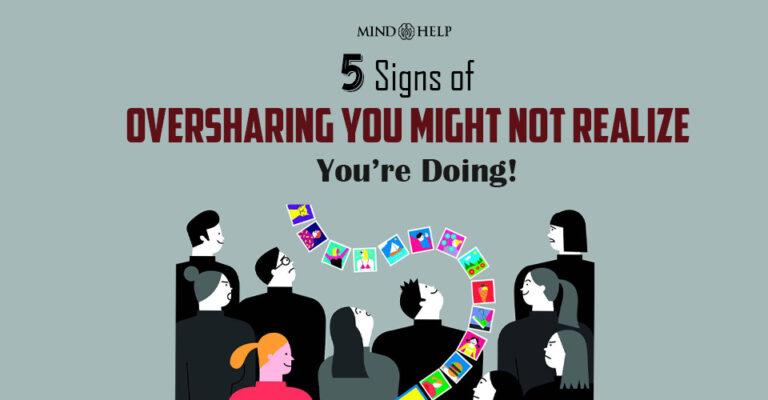When someone comments on your work or how you present yourself in the workplace, it can be incredibly difficult not to take it to heart. However, the office isn’t the best place to seek validation—or to have a breakdown (though if it happens, that’s okay too). So the question is: how to not take things personally at work?
A colleague might critique how you prepared a report, interacted with a senior, dismiss your performance, or fail to recognize your contribution. And suddenly, it feels like a personal attack—on your capabilities, your value, even your personality.
Some people react defensively, others resort to passive aggression, and many keep their feelings under wraps, all while stewing internally.
Regardless of the reaction, we often find ourselves ruminating over the incident for days—feeling hurt, thinking about how to retaliate, or trying to counter the criticism through overachievement.
But here’s the catch—reacting with aggression or overexertion can harm team dynamics and hinder career progression. Overextending yourself can also lead to burnout and negatively affect your emotional health.
The truth is, the ability to accept negative feedback or constructive criticism with grace is a prized skill in any corporate culture, across the globe.
If we make a habit of taking everything personally, it will impact our public image, job performance, mental health, and long-term sustainability. Worst of all, it may damage our credibility as reliable, professional contributors.
When that happens, even strong performance may not be enough to avoid being passed over during evaluations. So how can you protect your sense of self without shutting down?
If you’re sensitive like me, these suggestions might sound like passive-aggressive digs—”Stop overthinking,” or “Don’t take everything so seriously.” But when others are rude, dismissive, or overly critical, it is hard not to take it to heart.
The real question is: how can we stop taking things personally in a workplace where reputation is currency and validation-seeking can lead to exploitation?
Why Do We Take Things Personally at Work?
Before we dive into solutions, it’s important to explore the root causes. Ever asked yourself, “Why do I take things personally at work?” Here are some common reasons:
- Lack of self-confidence or pride in one’s work
- Low self-esteem, making individuals more vulnerable to external opinions
- Mental health challenges such as anxiety or chronic stress
- Perfectionism, where individuals set excessively high standards and feel crushed when they fall short
- Lack of assertiveness, leading people to internalize feedback instead of addressing it
- Personal bias or insecurity that gets projected onto interactions with others
- Lack of recognition for hard work and achievements
- Emotional sensitivity, which naturally makes one more likely to personalize feedback or perceived slights
Understanding these factors can empower you to begin changing the way you perceive workplace interactions.
How to Not Take Things Personally at Work
If workplace interactions feel personal even when they aren’t, here are seven practical strategies to help you stay grounded and resilient:
1. Take a Pause
Before reacting impulsively, give yourself a moment to breathe and reflect. Take a few deep breaths and remind yourself that not everything requires an immediate response. With time and practice, you’ll find it easier to process what was said and respond calmly, rather than reacting emotionally.
Tip: Ask yourself, “What’s the most professional way to handle this?” That mindset shift can change everything.
2. Give the Benefit of the Doubt
Sometimes a message comes across more harshly than intended, especially if the person delivering it lacks tact or strong communication skills. Try to separate the content of the message from the delivery. Was there a valid point hidden in poor wording?
Tip: When you focus on the message and not the tone, it becomes easier to extract value and let go of emotional impact.
3. Stop Absorbing Other People’s Energy
Often, people who feel threatened or insecure might try to downplay your success or undermine your efforts. This says more about them than it does about you. Recognize that their words or behavior are likely projections of their own issues.
Tip: Ask yourself, “Is this really about me—or about them?” Don’t carry their negativity home with you. It’s not your burden to bear.
4. See the Bigger Picture
At the end of the day, you’re at work to earn, grow, and contribute—not to win everyone’s approval. Both you and your organization have goals to achieve. Letting emotions drive your reactions can derail productivity and create unnecessary conflict.
Tip: Shift focus from momentary discomfort to long-term vision. Does this comment truly matter in the bigger scheme of things?
5. Practice Self-Motivation
One of the most powerful tools in your workplace toolkit is the ability to motivate yourself. When your self-worth comes from within, external opinions lose their power. Know your value and what you bring to the team.
Tip: Regularly remind yourself of your strengths, achievements, and personal growth. Confidence in your value is your best armor.
6. Practice Emotional Intelligence
We all admire empathy in theory, but when someone is intentionally difficult or irritating, empathy becomes a real challenge. Still, understanding where someone is coming from can diffuse tension. For instance, if a new intern constantly tries to one-up you, remind yourself that they’re probably just eager to impress and lack experience.
Tip: Be the bigger person. Help others grow, and maintain open communication with your supervisor to stay aligned with team goals.
Read: Empathy Test
7. Set Healthy Boundaries
Sometimes, taking things personally is a result of unclear boundaries. If a colleague oversteps—acting like your manager or trying to intimidate you—it’s okay to speak up. Do so respectfully and professionally.
Tip: Clearly communicate what behavior is acceptable, and if necessary, follow organizational protocol. Speak to HR or your supervisor, but avoid workplace gossip or venting publicly.
Taking Things Personally Means You Care
Still wondering how to stop taking things so personally at work? Understand this: caring about how you’re perceived doesn’t make you weak. It shows that you take pride in your work and the relationships you build.
However, it’s essential not to let that concern overpower your self-worth. Learn to distinguish between feedback that helps you grow and personal attacks that reflect someone else’s insecurity.
Constructive criticism can sharpen your skills and strengthen your character. Personal attacks, on the other hand, say more about the other person than they do about you.
We hope this guide on how to not take things personally at work offers insight and support. If you found this relatable, feel free to share your own tips or experiences in the comments below!








